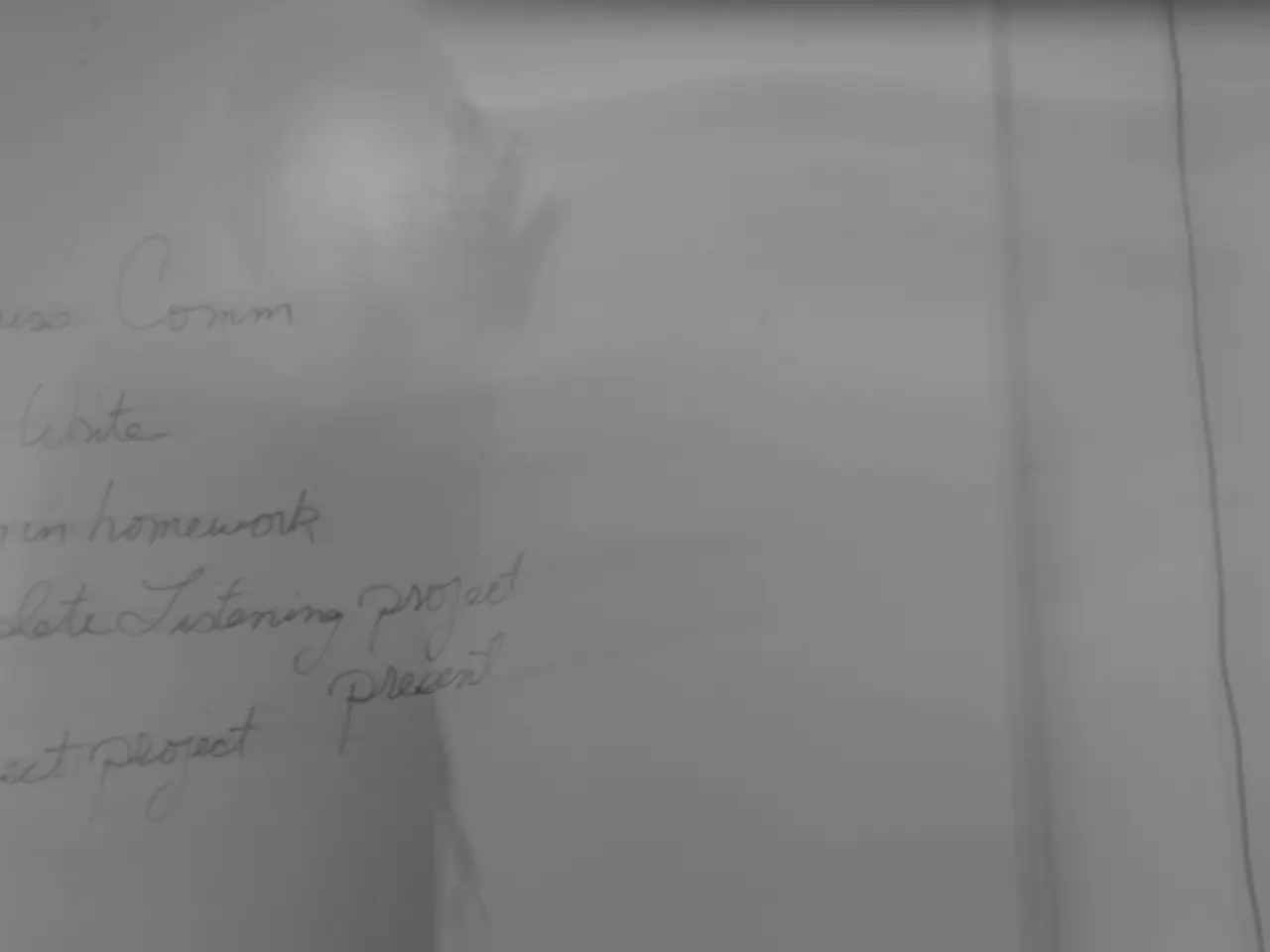Elon Musk Labels Peter Navarro as Foolish Amidst Uneasiness Among Americans Due to Trump's Tariffs
Elon Musk, the CEO of Tesla, and Peter Navarro, Trump's Senior Counselor for Trade and Manufacturing, are locked in a public dispute over tariff policies. This dispute, which came to light in August 2025, is a reflection of deeper tensions within the Trump administration between protectionist trade hawks and free-market, innovation-driven figures.
Background
Navarro, reinstated in Trump's second term starting late 2024, is a hardline advocate for permanent tariffs to balance the U.S. trade deficit and protect American jobs. He played a central role in shaping the administration’s reciprocal and aggressive tariff regime, which includes tariffs ranging from 10 to 41% on 95 countries.
Navarro's tariff policies have been controversial, causing disruptions in supply chains and economic tensions. Critics call some tariff wars "ham-fisted" and counterproductive, leading to market declines and supply shortages. However, Navarro credits Trump's challenging stance on trade with forcing fairer trade deals and even suggests Trump deserves a Nobel Prize in economics for this "fundamental restructuring" of international trade.
The Musk-Navarro Dispute
Musk's dispute with Navarro became public when Musk called Navarro a "moron" on Twitter. Musk has been lobbying behind the scenes for Trump to scale back his tariff plan, but it hasn't succeeded. Musk is promoting free trade policies and is upset with the tariffs announced by Trump on various countries.
This disagreement reflects deeper tensions within the Trump administration. Other billionaires who backed Trump with generous donations to his inauguration fund are also reportedly upset that Trump is currently destroying the U.S. economy with self-sabotaging policies, but it doesn't seem like any of that anger is breaking through to the president.
Implications
The dispute underscores divisions in U.S. economic and trade policy between protectionism and free trade/business innovation approaches. Navarro’s tariffs aim to strengthen domestic manufacturing and reduce trade deficits but have drawn criticism for causing inflationary pressures, supply chain issues, and strained international relations. Musk's opposition signals concerns from major private sector actors about the economic costs and efficacy of Navarro’s tariff-heavy strategy.
Ongoing Developments
As of mid-August 2025, the tariff regime initiated by Navarro and Trump remains active, with the administration continuing to impose and negotiate tariffs globally. The discord between Musk and Navarro has generated media coverage but no detailed resolution yet, illustrating ongoing internal conflict within Trump’s economic team.
Trump's tariff threats have caused countries to figure out ways to route around the U.S. since it's now widely seen as an unreliable trade partner. Most countries were hit with at least a 10% tariff by Trump last week, including some allies. Tesla cars, according to Musk, have the most American-made cars.
The tariffs have sent stocks lower over the past week, but the markets were in positive territory Tuesday as some traders seem to hold out hope that Trump will back down. U.S. Trade Representative Jamieson Greer testified to Congress about the tariffs on Tuesday, defending them as something that made sense to bring jobs back to the U.S. Greer insisted when asked about what is very obviously a trade war that "This is not a trade war. Most countries have said they're not going to retaliate."
Hedge funds are piling up record short bets, according to CNBC, which is generally a bad sign when the big money believes things are going to get worse. Ron Vara, an anagram of Peter Navarro and invented by him for his 2011 book Death by China, has been a topic of conversation on Twitter, with Musk suggesting Navarro should ask this fake expert. Spokesperson Karoline Leavitt told CNBC that everything is fine between Musk and Navarro, and that the White House is the most transparent administration in history, expressing their disagreements in public.
In summary, the Elon Musk-Peter Navarro tariff dispute is a microcosm of the broader trade policy controversy under Trump’s second administration, reflecting fundamental disagreements over the role of tariffs and protectionism in U.S. economic strategy. The ongoing dispute and the active tariff regime have raised concerns about the economic costs and efficacy of Navarro's tariff-heavy strategy, and the potential impact on the U.S. economy and international relations.
- In the midst of Elon Musk's dispute with Peter Navarro over tariff policies, Musk has been lobbying for a reduction in the tariff plan, but to no avail.
- The Musk-Navarro dispute, which became public in August 2025, is a reflection of deeper tensions within Trump's second term administration between protectionist trade hawks and innovation-driven figures.
- Navarro's tariff policies have been contentious, with critics arguing they cause economic disruptions, supply chain issues, and inflationary pressures.
- While Navarro credits Trump's strong stance on trade for fairer deals and a possible Nobel Prize in economics, Musk promotes free trade policies and is concerned with the tariffs imposed on various countries.
- Hedge funds are amassing record short bets, a sign of market pessimism, as the ongoing tariff regime and the Musk-Navarro dispute have raised concerns about the economic costs and effectiveness of the tariff-heavy strategy.
- The future of U.S. economic and trade policy is shrouded in uncertainty, with ongoing policy debates surrounding the role of tariffs, protectionism, and free trade/business innovation in the broader context of technology, finance, entrepreneurship, social media, entertainment, policy-and-legislation, and politics.




